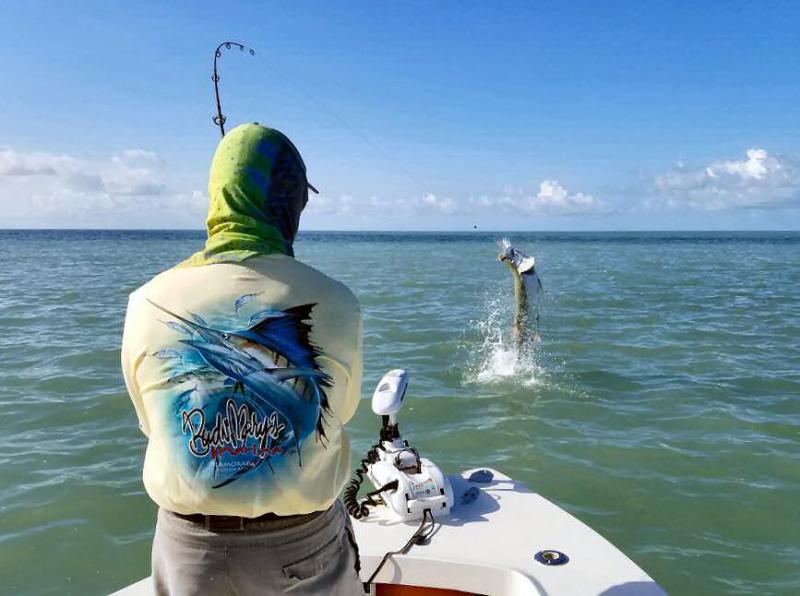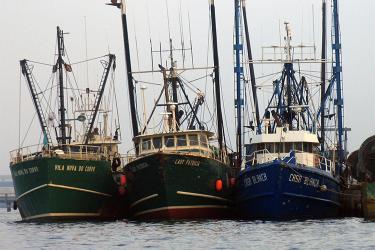NOAA Fisheries has conducted a pilot study on our recreational Fishing Effort Survey. The study is part of our commitment to continuous improvement and to producing quality recreational fishing data. These preliminary results suggest that the order of the questions in the survey may lead to overestimation of fishing effort, though a more robust study is necessary to confirm findings. It will be implemented in 2024.
The survey is a household mail survey administered from Maine to Mississippi and in Hawaii. It collects recreational fishing trip information for boat and shore fishing from private anglers. It’s part of a group of NOAA Fisheries’ surveys used to estimate total recreational catch. This information provides one piece of critical data that helps inform stock assessments and fisheries management decisions.
“We listened to the concerns of our recreational fishing community, and we took action to investigate their concerns further as part of our ongoing research process,” said Dr. Evan Howell, director of NOAA Fisheries’ Office of Science and Technology.
Evaluating and Improving the Current Survey
The Fishing Effort Survey was designed through an extensive research and peer-review process. The sequence of questions is based on a well-researched and standard survey practice to ask easier questions prior to more challenging questions. However, findings from our 6-month pilot study suggest this may not always be optimal. Changing the order of questions in the pilot study led to fewer observed reporting errors and illogical responses uncovered during our standard data review process. The resulting effort estimates were lower for shore and private boat fishing than estimates produced from the current design. However, results varied by type of fishing and state.
“The findings from this limited pilot study should not be taken as a final answer, and the results cannot be generally applied to all fisheries and fishing areas,” said Howell. “We have to do our due diligence in conducting a full-scale study prior to assessing the need for design changes or making large-scale changes to assessments or management measures.”
The planned follow-up study will be conducted over a longer duration with a larger sample size. This will help us gain a clearer understanding of the differences in effort estimates between the current design and a revised design that changes both the question order and increases the frequency of sampling. The revised design will be administered throughout all of 2024 alongside the current survey to compare the results.
“The switch to monthly sampling will have positive impacts to recreational fishing science and management, and is a very important piece to this study,” said Howell. “Monthly survey administration will produce more frequent effort and catch estimates, which is a priority of our regional partners. A shorter respondent recall period may also minimize reporting error in the survey.”
Supporting Informed Fisheries Management
Our staff and our partners at regional fishery management councils, marine fisheries commissions, and states use a combination of fisheries data to make informed fisheries management decisions.
“We won’t have all the answers regarding potential impacts to catch and effort estimates or stock assessments until we’ve completed the follow-up study,” said Howell. “We recognize that changes to a survey method can cause disruption to stock assessments and fisheries management decisions, and are committed to working openly and transparently with our partners throughout this process.”
If the agency shifts to a revised design—based on the findings of the follow-up study—the magnitude of historical estimates may change, but critical catch and effort trend information are expected to remain similar. It’s important to note that stock status determinations are relatively consistent when trend information hasn’t changed.
We will work closely with our partners to make informed decisions on how to proceed in light of the pilot study findings. Until we have the full-scale study results in hand, data from the Fishing Effort Survey remains the best—and sometimes the only—available science for tracking relative year-to-year and long-term effort trends.
Gulf of Mexico Fisheries Management Council members recently initiated a collaborative approach for determining which stock assessments and fisheries management actions may be impacted by these study findings and for identifying potential solutions in the short, medium, and long term.
"We are pleased with the fisheries management councils’ actions to determine which decisions may be impacted, and we fully commit to working with them, our marine fisheries commissions, and our other partners moving forward,” said Dr. John Walter, NOAA Fisheries’ Southeast Fisheries Science Center, deputy director for Science and Council Services. “We are also pleased to work with our state partners to find effective solutions."
Adapting to Survey Improvements
It is a standard practice for government agencies that produce statistics to evaluate their current survey methods and develop new or improved methods. As with all of the surveys we administer, we have extensively tested the Fishing Effort Survey for various other common survey biases that can impact data accuracy. These include non-response and adequate coverage of the recreational fishing population.
The evolution of surveys through pilot studies is not uncommon. We are prepared to review and analyze the results of the 2024 follow-up study in our continuous effort to improve recreational data collection.
“We have initiated important discussions with our partners on how to become more adaptive in our fisheries assessment and management processes in light of continuous survey improvements and data uncertainty,” said Howell. “We will continue working collaboratively with our partners on programmatic improvements to the state-regional-federal partnership for recreational data collection, including leveraging recent Inflation Reduction Act investments.”



